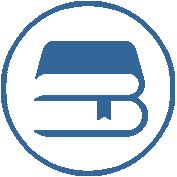Rules for the usage of computer workstations and electronic databases at WUL
I. Types of computer workstations at WUL:
1. Priority in access to stationary computer workstations have users using WUL's electronic resources and services for purposes related to science and education at the academic level:
1/ employees and students of the University of Wrocław – after presenting valid library card/students ID,
2/ users from outside of the University of Wrocław – after obtaining permission from the librarian and basing on valid library card.
2. The following types of computer workstations are available in the departments serving users:
terminals with access to WUL's catalogs (reading rooms, Informatory, FA, halls);
workstations with access to electronic databases (Informatory), workstations with the access to the Internet and the Open Office package (individual work cabins in the Main Reading Room,
workstations adapted to the needs of users with disabilities (in each department serving users).
3. It is forbidden to:
1/ take actions that cause devastation or damage to library's workstations and their equipment, disruption of the computer network and destruction of software;
2/ make any changes to the configuration of the library's workstations, making attempts to hack the existing system security and interfering with the content of the collected data;
3/ upload and share content that is illegal or subjected to intellectual property protection, the subject of which is not the user;
4/ uploade and share content that may violate anyone's personal rights;
5/ mass disseminating of advertising content (so-called spam);
6/ disseminating computer viruses and other programs that may damage computers of other Internet users;
7/ use of workstations for private correspondence (e-mail, SMS, etc.), for games and activities;
8/ use workstations for commercial purposes, performing any activities that infringe the copyrights of the authors or distributors of software and data;
9/ in the event of violation of the applicable rules, the librarian has the right to immediately terminate the user's session.
4. Usage of ones own computer equipment:
1/ users have the right to use their own computer equipment in a way that will not violate the IT and technical infrastructure of the Library;
2/ The library is not responsible for any damage to hardware or software belonging to users.
II. Electronic databases:
1. Access to online services and databases paid by the University of Wrocław is free and intended only for employees, PhD students and students of the University of Wrocław, regardless of the form of education.
2. Rules of usage of licensed databases from outside of University of Wrocław computer network is specified by the license conditions and internal rules set by the Library's Director.
3. Access to free electronic information resources (repositories, digital libraries, bibliographies, catalogs, etc. that are available online) is possible for all users who have a valid library account without unpaid obligations towards the Library.
4. The librarian provides help with usage of the databases.
5. Permitted use of databases:
1/ search and view electronic resources;
2/ making single copies of articles on electronic or paper carrier for educational, didactical or research purposes. Copies may be made only on the terms specified by the licensor who has the rights to make the copied materials available;
3/ Creating individual collections of electronic documents needed for ones researches, including printing and saving on electronic carrier. Such collections could only be created for time of education or conducting didactical and scientific researches).
6. Prohibited use of databases:
1/ creating local archives basing on available electronic resources, including printing or saving whole volumes on electronic carriers (hard drive, pendrive, disc, CD-ROM, DVD-ROM, NAS storage);
2/ deleting or modifying information about copyrights, as well as authors or other designations of property displayed on products or screen;
3/ Selling, re-selling, lending or passing information in any form to unauthorized persons (exception from this rule is scientific exchange between researches, if it is not systematic cooperation);
4/ using of licensed sources by Users for commercial activities.
[2020-03-04]
